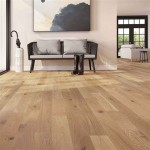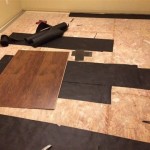Choosing the Ideal Flooring for Your Bedroom
The bedroom is a sanctuary, a place of rest and relaxation. The flooring you choose for this space should reflect this, creating a comfortable and inviting atmosphere. With a wide range of materials and styles available, selecting the perfect flooring solution can be daunting.
To help you make an informed decision, consider these essential factors when choosing flooring for your bedroom:
1. Comfort and Ambiance
The flooring in your bedroom should be soft and comfortable underfoot, creating a welcoming space. Consider materials like carpet or cushioned vinyl that provide a plush feel. If you prefer a more durable option, hardwood or laminate flooring can be matched with a soft area rug for warmth and comfort.
2. Durability and Maintenance
The bedroom is a high-traffic area, so durability is crucial. If you have pets or young children, choose a flooring material that can withstand spills, stains, and scratches. Laminate, vinyl, and tile are excellent options for these scenarios, as they are easy to clean and maintain.
3. Noise Absorption
For a peaceful and restful sleep, consider flooring that absorbs noise. Carpet is a natural sound insulator, while cork and cushioned vinyl can also reduce noise levels. If you have hardwood or laminate flooring, adding an area rug can help dampen sound.
4. Allergies and Asthma
If you or a family member suffers from allergies or asthma, choosing a hypoallergenic flooring option is essential. Carpet can trap dust and allergens, while hardwood, laminate, and tile are less likely to exacerbate allergies. Additionally, consider using low-VOC (volatile organic compound) materials to minimize indoor air pollution.
5. Style and Aesthetics
The flooring in your bedroom should complement the overall design and style of the space. Choose colors and patterns that harmoniously blend with your décor. For a classic and sophisticated look, consider hardwood or laminate flooring. For a cozy and inviting atmosphere, opt for carpet in neutral or earthy tones.
6. Budget and Installation
Flooring materials vary in cost and installation complexity. Set a budget before making your selection, and consider the installation costs associated with different options. Carpet typically requires professional installation, while laminate and vinyl flooring can be installed as a DIY project.
7. Other Considerations
In addition to the factors mentioned above, consider these additional elements when choosing flooring for your bedroom:
- Underfloor heating compatibility: If you plan to install underfloor heating, ensure the flooring material is compatible.
- Slip resistance: Choose flooring with a non-slip surface, especially if you have young children or elderly family members.
- Water resistance: If your bedroom is prone to moisture or spills, opt for water-resistant flooring materials like tile or vinyl.
Conclusion
Choosing the ideal flooring for your bedroom is a multifaceted decision that requires careful consideration of various factors. By considering comfort, durability, noise absorption, allergies, style, budget, and other relevant aspects, you can select a flooring solution that creates the perfect sanctuary for rest and relaxation.
What Is The Best Flooring For Bedrooms Tarkett

Choosing Vinyl Flooring For A Bedroom Tarkett

Choosing Wood Floors For A Bedroom Tarkett

Best Flooring Ideas For Your Bedroom Leader

How To Choose The Right Flooring For Your Bedroom Off Mrkt

Choosing Wood Floors For A Bedroom Tarkett

Bedroom Floor Ideas To Add Flair The Home

How To Make A Room Look Bigger With Flooring America

5 Flooring Tips To Make A Room Look Bigger Kennington

What Is The Best Flooring For Bedrooms Tarkett
See Also







